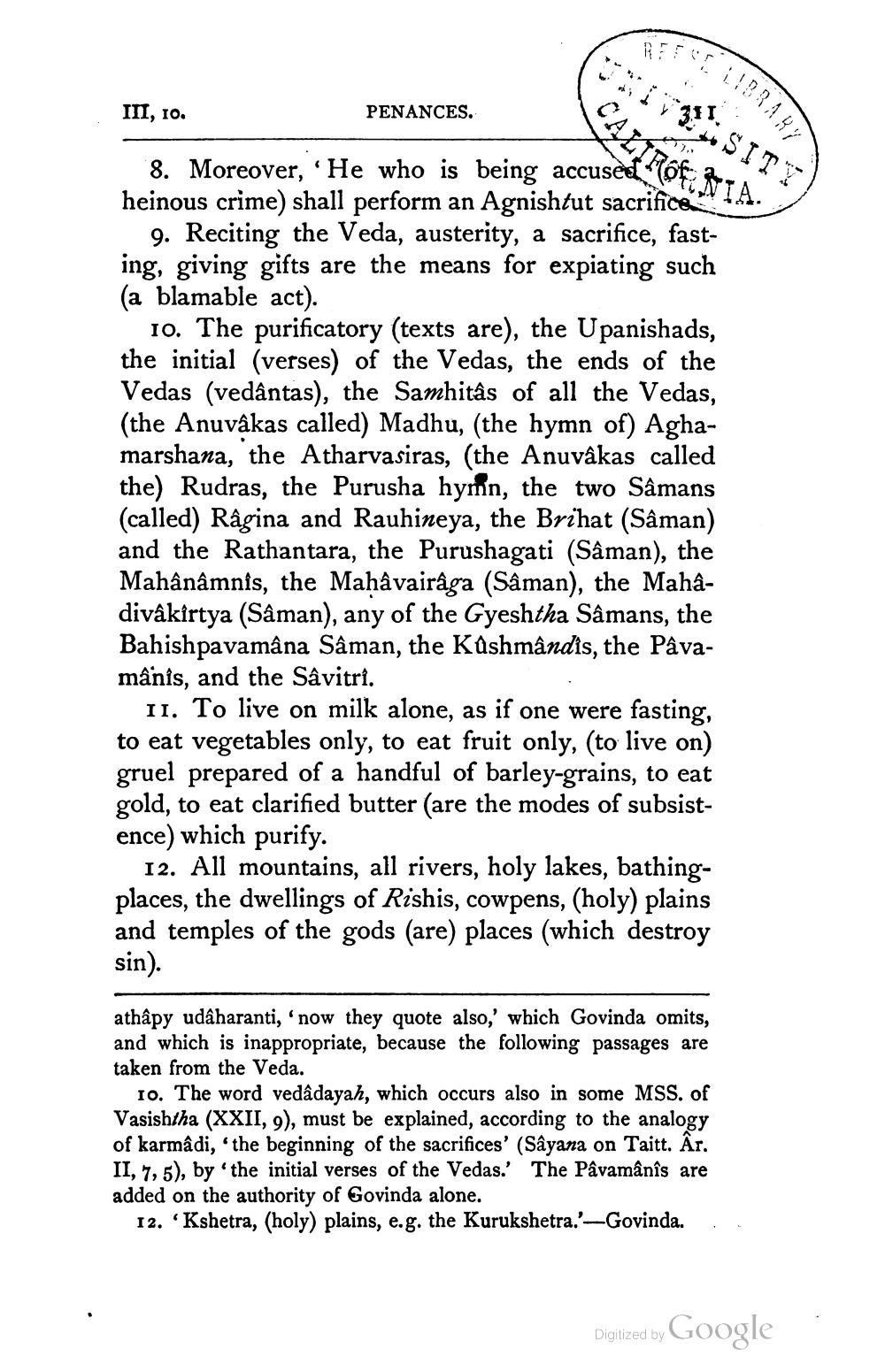________________
*
III, 10.
PENANCES.
ESITY
FOEMIA.
A.
8. Moreover, 'He who is being accused of a heinous crime) shall perform an Agnishtut sacrifice
9. Reciting the Veda, austerity, a sacrifice, fasting, giving gifts are the means for expiating such (a blamable act).
10. The purificatory (texts are), the Upanishads, the initial (verses) of the Vedas, the ends of the Vedas (vedântas), the Samhitâs of all the Vedas, (the Anuvâkas called) Madhu, (the hymn of) Aghamarshana, the Atharvasiras, (the Anuvâkas called the) Rudras, the Purusha hynn, the two Sâmans (called) Râgina and Rauhineya, the Brihat (Sâman) and the Rathantara, the Purushagati (Sâman), the Mahânâmnis, the Mahầvairâga (Sâman), the Mahadivâkirtya (Saman), any of the Gyeshtha Sâmans, the Bahishpavamâna Sâman, the Kushmândis, the Pâvamânis, and the Sâvitri.
11. To live on milk alone, as if one were fasting, to eat vegetables only, to eat fruit only, (to live on) gruel prepared of a handful of barley-grains, to eat gold, to eat clarified butter (are the modes of subsistence) which purify.
12. All mountains, all rivers, holy lakes, bathingplaces, the dwellings of Rishis, cowpens, (holy) plains and temples of the gods (are) places (which destroy sin).
athậpy udâharanti, ‘now they quote also,' which Govinda omits, and which is inappropriate, because the following passages are taken from the Veda.
10. The word vedadayah, which occurs also in some MSS. of Vasishtha (XXII, 9), must be explained, according to the analogy of karmâdi, 'the beginning of the sacrifices' (Sâyana on Taitt. Ar. II, 7, 5), by 'the initial verses of the Vedas.' The Pâvamânîs are added on the authority of Govinda alone.
12. 'Kshetra, (holy) plains, e.g. the Kurukshetra.'-Govinda...
Digitized by
Digilized by Google
.




